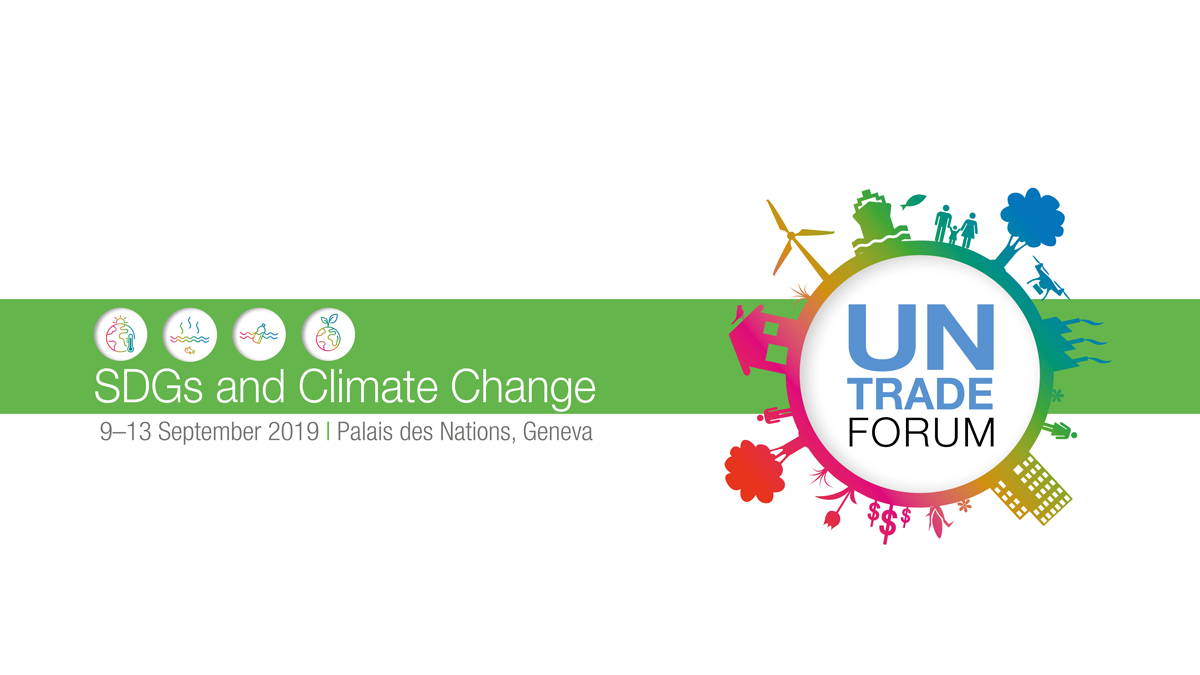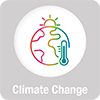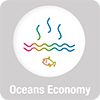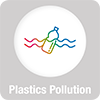To boost ambition and accelerate actions to implement the Paris Agreement on Climate Change, UN Secretary-General António Guterres will host the 2019 Climate Summit on 23 September to meet the climate challenge. The UNCTAD Trade Forum is meant as a contribution to the Summit from the trade and developmental community. It will bring into focus the need for action on the means of implementation – finance, technology and capacity building - and the role of trade as an enabling factor in meeting this need and leveraging the various co-benefits – economic diversification, jobs, innovation, better management and communications.
On the front line of climate change - at the ocean-land interface – coastlines and coastal communities are among the first and most affected. One group of Parties to the Paris Agreement are particularly active and vocal: Small Island Developing States, or SIDS. Sea-level rise, an increased frequency and magnitude of storms, flooding, erosion, and associated damage to coastal infrastructure, fisheries and ecosystems threaten the physical, economic and social fabric of coastal regions.
With its focus on islands and coastal communities, the agenda of the Trade Forum practically mirrors the Chilean vision of a “blue” COP 25, which has oceans as its overriding theme. SIDS and coastal communities may not be able to change the political course of efforts to mitigate climate change, but what the international community does or does not do will determine their fate. The Forum also reflects other priorities recently set out by the Chilean presidency: circular economy and biodiversity. While striking - the two events have been conceptualized independently of each other - this convergence is indicative of the critical importance of all these areas.
Oceans-based economic diversification could enhance the Nationally Determined Contributions of SIDS to the implementation of the Paris Agreement. Trade can be an enabling factor in adaptation and in mainstreaming oceans-based economic activities in SIDS, where domestic markets remain small and remoteness is an intractable hindering factor. Taking stock at current developments in the final phase of WTO fish subsidies negotiations on potential approaches on prohibitions, harmful effects and cap-based systems as well as complementary options could be quite timely when devising trade related policies on oceans-based activities. Disciplining fish and related fuel subsidies as well as a sound tax policy reform, can support mitigation efforts and create incentives for carbon-neutral technologies and best practices in key sectors such as transport, fisheries, and tourism.
Capacity Development in Ocean Governance plays a central role in ensuring safe and healthy oceans for the benefit of humankind. Additionally, obligations towards achieving the SDGs, notably SDG14 and its targets, and other interdependent SDGs, place a burden of responsibility on decision-makers and practitioners which may benefit from targeted capacity development and knowledge transfer at all levels. The International Ocean Institute (IOI) is an independent, non-governmental non-profit organisation conducting training and capacity development in Ocean Governance worldwide. The IOI, through its global network of centres, and a portfolio of international and regional Training and Capacity Development Programmes in Ocean Governance provides tangible and measurable action towards achieving Agenda 2030 and the interdependent SDGs and their targets. The panellists will advance examples of such outreach to developing countries and countries in transition towards achieving the 2030 Agenda, through developing capacity globally and through the emphasis on achieving the SDGS.
The 16th Raúl Prebisch Lecture will be given by The Honorable Mia Amor Mottley, Prime Minister of Barbados. Prime Minister Mottley’s lecture topic will be announced in due course.
The Honorable Mia Mottley is the 8th Prime Minister of Barbados. She became the first woman to occupy that high office, following general elections on 24 May 2018, in which she led the Barbados Labour Party to an emphatic victory, winning all 30 seats in the House of Assembly by the largest margin ever seen in the electoral history of the country.
Plastic pollution constitutes a serious threat to world’s oceans, affecting biodiversity, ecosystem services and livelihoods. Curbing plastic pollution is not simply a matter of changing consumer and municipality waste patterns because pollution sources are often linked to technologies and decisions applied in the manufacturing stages of products entering the global supply chains. At the same time, remediating plastic pollution already dispersed throughout the oceans is infinitely more challenging, although efforts are succeeding in removing plastics from coastlines and neighboring waters. As some aspects of manufacturing-related plastics pollution can be dealt with by circular approaches and other strategies, this session brings together advocates, researchers, producers and donors to discuss research, industrial and behavioral initiatives aimed at dealing with this problem.
UNCTAD’s Commodities and Development Report 2019 examines the nexus between commodity dependence, climate change and the Paris Agreement. Commodity sectors not only affect the climate but are also heavily vulnerable to it. On the one hand, the prospection, production, processing, consumption and disposal of commodities are among the main sources of anthropogenic greenhouse gas emissions. On the other hand, climate change is a source of important shocks to commodity sectors, posing dire social and economic risks to people and countries dependent on commodities. Although commodity-dependent developing countries (CDDCs) have contributed only modestly to greenhouse gas emissions, they will be strongly affected by the implementation of the Paris Agreement. Moreover, for most of these countries, rising to the challenge of climate change will be difficult as they lack the financial and technical capacities to design and implement adaptation measures, which highlights their need for assistance.
While climate change and the implementation of the Paris Agreement pose many challenges to CDDCs, they also create localized opportunities in some countries. In particular, the global push towards renewable energy creates opportunities in countries with large reserves of materials used in clean technologies, such as solar photovoltaic cells, wind turbines and electric vehicle batteries. The design of policies and strategies in commodity sectors needs to consider the challenges and opportunities emanating from climate change and an evolving global climate policy regime. This process will require significant finance and political will, as well as the development of human resources and technological capabilities.
According to the Intergovernmental Science-Policy Platform on Biodiversity and Ecosystem Services (IPBES), biodiversity loss is rapidly accelerating, with an estimated 1 million animal and plant species threatened with extinction. With 70 percent of the world’s poor depending directly on biodiversity, this ongoing decline undermines development gains achieved in recent decades, and may even reverse them. BioTrade can generate critical incentives for the conservation and sustainable use of biodiversity. Value chains respecting strict BioTrade principles and criteria are being developed in over 50 countries in Asia, Africa, Americas and Europe in sectors such as personal care, phytopharma, food, fashion, ornamental flora and fauna, handicrafts, textiles and natural fibers or sustainable tourism. The fifth BioTrade Congress will provide an international platform where BioTrade partners, practitioners and stakeholders can share experiences in implementing inclusive and sustainable business practices. This edition focuses on the transformational change needed for businesses and trade to curb biodiversity loss. Its conclusions will be contributed as inputs in the ongoing negotiations on the post-2020 global biodiversity Framework.
Discussions will explore how sustainable trade in biodiversity-based products and services can contribute to biodiversity conservation and discuss possible policy frameworks and incentive measures to promote the sustainable use of biodiversity-based products at all levels. In doing so, experts and business representatives will review major trends in sustainable sourcing, non-tariff barriers, ecolabels, transparency and packaging and their implications for biodiversity the conservation and sustainable use. Finally, the Congress will provide an opportunity to launch the updated BioTrade Principles and Criteria (P&C) and and will provide insights on the new company self-assessment tool developed jointly with ITC. It will also provide a space for SMEs and other suppliers from Africa, Asia and Latin America to present their products and share their experience with potential buyers and partners from Europe, Asia, Africa, Americas in an informal setting.
This Congress is organized under the BioTrade Programme: Linking trade, biodiversity and sustainable development funded by Swiss State Secretariat for Economic Affairs SECO and the French Facility for Global Environment (FFEM).




 Oceans-based economic diversification could enhance the Nationally Determined Contributions of SIDS to the implementation of the Paris Agreement. Trade can be an enabling factor in adaptation and in mainstreaming oceans-based economic activities in SIDS, where domestic markets remain small and remoteness is an intractable hindering factor. Taking stock at current developments in the final phase of WTO fish subsidies negotiations on potential approaches on prohibitions, harmful effects and cap-based systems as well as complementary options could be quite timely when devising trade related policies on oceans-based activities. Disciplining fish and related fuel subsidies as well as a sound tax policy reform, can support mitigation efforts and create incentives for carbon-neutral technologies and best practices in key sectors such as transport, fisheries, and tourism.
Oceans-based economic diversification could enhance the Nationally Determined Contributions of SIDS to the implementation of the Paris Agreement. Trade can be an enabling factor in adaptation and in mainstreaming oceans-based economic activities in SIDS, where domestic markets remain small and remoteness is an intractable hindering factor. Taking stock at current developments in the final phase of WTO fish subsidies negotiations on potential approaches on prohibitions, harmful effects and cap-based systems as well as complementary options could be quite timely when devising trade related policies on oceans-based activities. Disciplining fish and related fuel subsidies as well as a sound tax policy reform, can support mitigation efforts and create incentives for carbon-neutral technologies and best practices in key sectors such as transport, fisheries, and tourism. 


 Plastic pollution constitutes a serious threat to world’s oceans, affecting biodiversity, ecosystem services and livelihoods. Curbing plastic pollution is not simply a matter of changing consumer and municipality waste patterns because pollution sources are often linked to technologies and decisions applied in the manufacturing stages of products entering the global supply chains. At the same time, remediating plastic pollution already dispersed throughout the oceans is infinitely more challenging, although efforts are succeeding in removing plastics from coastlines and neighboring waters. As some aspects of manufacturing-related plastics pollution can be dealt with by circular approaches and other strategies, this session brings together advocates, researchers, producers and donors to discuss research, industrial and behavioral initiatives aimed at dealing with this problem.
Plastic pollution constitutes a serious threat to world’s oceans, affecting biodiversity, ecosystem services and livelihoods. Curbing plastic pollution is not simply a matter of changing consumer and municipality waste patterns because pollution sources are often linked to technologies and decisions applied in the manufacturing stages of products entering the global supply chains. At the same time, remediating plastic pollution already dispersed throughout the oceans is infinitely more challenging, although efforts are succeeding in removing plastics from coastlines and neighboring waters. As some aspects of manufacturing-related plastics pollution can be dealt with by circular approaches and other strategies, this session brings together advocates, researchers, producers and donors to discuss research, industrial and behavioral initiatives aimed at dealing with this problem. 
 According to the Intergovernmental Science-Policy Platform on Biodiversity and Ecosystem Services (IPBES), biodiversity loss is rapidly accelerating, with an estimated 1 million animal and plant species threatened with extinction. With 70 percent of the world’s poor depending directly on biodiversity, this ongoing decline undermines development gains achieved in recent decades, and may even reverse them. BioTrade can generate critical incentives for the conservation and sustainable use of biodiversity. Value chains respecting strict BioTrade principles and criteria are being developed in over 50 countries in Asia, Africa, Americas and Europe in sectors such as personal care, phytopharma, food, fashion, ornamental flora and fauna, handicrafts, textiles and natural fibers or sustainable tourism. The fifth BioTrade Congress will provide an international platform where BioTrade partners, practitioners and stakeholders can share experiences in implementing inclusive and sustainable business practices. This edition focuses on the transformational change needed for businesses and trade to curb biodiversity loss. Its conclusions will be contributed as inputs in the ongoing negotiations on the post-2020 global biodiversity Framework.
According to the Intergovernmental Science-Policy Platform on Biodiversity and Ecosystem Services (IPBES), biodiversity loss is rapidly accelerating, with an estimated 1 million animal and plant species threatened with extinction. With 70 percent of the world’s poor depending directly on biodiversity, this ongoing decline undermines development gains achieved in recent decades, and may even reverse them. BioTrade can generate critical incentives for the conservation and sustainable use of biodiversity. Value chains respecting strict BioTrade principles and criteria are being developed in over 50 countries in Asia, Africa, Americas and Europe in sectors such as personal care, phytopharma, food, fashion, ornamental flora and fauna, handicrafts, textiles and natural fibers or sustainable tourism. The fifth BioTrade Congress will provide an international platform where BioTrade partners, practitioners and stakeholders can share experiences in implementing inclusive and sustainable business practices. This edition focuses on the transformational change needed for businesses and trade to curb biodiversity loss. Its conclusions will be contributed as inputs in the ongoing negotiations on the post-2020 global biodiversity Framework.